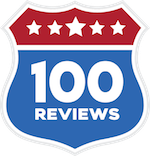Find out how and who is at risk

One of the most commonly cited bits of research about online reviews is in a 2011 Harvard Business School paper by Michael Luca. The study reveals that a one-star increase in Yelp ratings can lead to 5-9% more revenue for a restaurant. This research was published in 2011 and updated in 2016. Still today, it overshadows much of the business world’s discussions around online reviews and profitability.
There is a well-established correlation between positive reviews and company revenue. We’re increasingly seeing online reviews as assets leveraged by various institutions to advance their goals and interests.
Healthcare reviews
Another interesting peer-reviewed research paper published in May 2019 is on healthcare reviews
One of the most interesting findings in this paper relates to online reviews of physicians. The research uncovers that doctors on probation (levied by their regulatory body) tend to have lower ratings. This correlation led the paper’s authors to ponder… Could review sites be considered in evaluations of practitioners by regulatory bodies one day?
From the paper…
“As these review platforms grow over time, it will be interesting to see how regulatory bodies may take these reviews into account… One study found physicians on probation to have lower ratings on these review platforms.”
Risk Management and Healthcare Policy
This is an indication that online reviews may already be having more influence over businesses than profit and loss. In fact, some credit bureaus are factoring online reviews into businesses’ credit scores. Furthermore, the NY City Department of Health has crunched data from Yelp reviews in efforts to head off food-borne illness outbreaks since 2012.
Who else does this impact?
Realtors have been rated on review sites such as RatedAgent.com and RealSatisfied.com. Might a state real estate board consider online reviews in cases of alleged malfeasance by a state-licensed real estate agent?
And what about travel related businesses? Could your negative TripAdvisor online review lead to the revocation of a hotelier’s business license?
Consumer protection
What’s the appeal of online reviews in this consumer protection and oversight context? I suppose it’s that reviews are seen as a potential real-time indication of practitioners’ or businesses’ competency or trustworthiness. I assume the logic is that by tapping into real-time customer sentiment about a company, a potential disaster (such as a botched surgery or a salmonella outbreak) could be averted.
But in their efforts to help some institutions manage risk, I fear some business executives may be overzealous about their faith in reviews. I support the idea that online reviews can be an asset to help buyers make more informed purchasing decisions. I also recognize the potential of using reviews to advance the objectives of institutions (insurers, regulatory bodies, lenders, etc.). That being said, I have some concerns. There is too frequently a laissez-faire approach to vetting reviews by some players in The Review Economy.
Fake online reviews
We’re all well aware that a fake review epidemic is currently taking hold in our online markets. Notably, online reviews are not always reliable. In fact, up to 25% of Yelp reviews and 40% of Amazon reviews are unreliable. It’s outrageous that fraudulent activities such as review brushing can impact the rise and fall of products and businesses. Sites such as ReviewMeta.com, ReviewFraud.org, and FakeSpot.com help shoppers reduce the effects of phony reviews on their purchases.
Some review sites are obviously and easily compromised of fake reviews. Hence we must call into question the wisdom of institutions basing their evaluations of businesses and practitioners on those sites’ reviews. It’s far too easy to imagine two competing restaurants in NY falsely reporting each other on Yelp for food poisoning in an effort to shut them down for food-borne illness outbreak concerns.
Beyond profit and loss
We already know that online reviews affect businesses’ profit and loss. As The Review Economy gains steam, companies are finding they impact more than just their profit and loss. Online reviews could ultimately impact their ability to secure a loan. They could temporarily shutter businesses. They could even prevent a medical practitioner from maintaining their license to practice.
The point here is that review sites must be more diligent in verifying a reviewer’s identity. Therefore, steps should be taken to confirm that reviewers have actually patronized the entity being reviewed. Review sites are only as good as their authentic reviews. In short, weeding out fraudulent reviews should be job #1 for review site operators.
Tell us what you think! Tweet us @100_Reviews and share your thoughts. We’d love to hear from you and maybe even feature you (or share your story) on an upcoming episode of the #ReviewChat Podcast!

Recent Comments